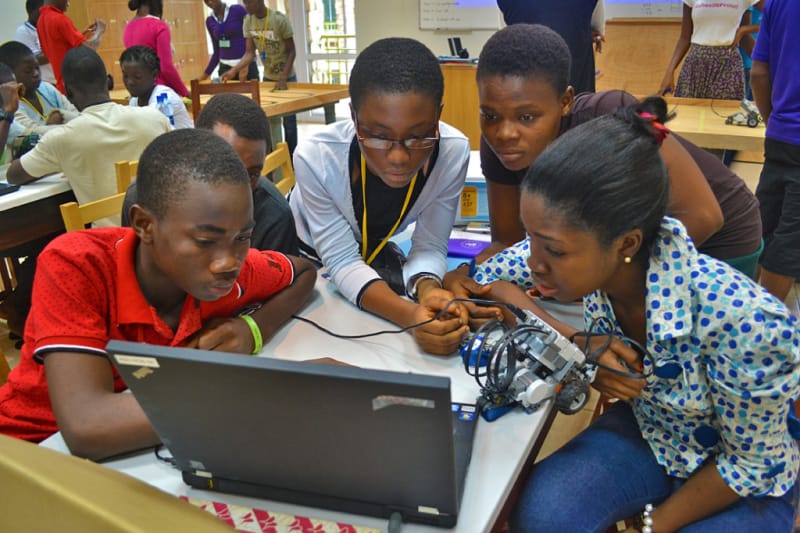Pan-African group will receive support to scale up EdTech innovations that improve teaching and learning in secondary education.
The Mastercard Foundation Centre for Innovative Teaching and Learning in Information, Communications, and Technology (ICT) today announced the first cohort of 12 EdTech Fellows, companies that will benefit from the Centre’s support to expand their operations and improve secondary teaching and learning across the continent.
The Fellows were selected after an Africa-wide Request for Proposals late last year. Innovators were invited to submit proposals that either:
- Enhance and increase accessibility and affordability of professional development for in-service teachers, which also minimizes their out-of-classroom time; or
- Create and deliver enriched learning content that improves quality, relevance, and accessibility to both in-school and out-of-school secondary school learners.
Peter Materu, Chief Program Officer at the Mastercard Foundation says, “The announcement of these first Fellows at the Centre for Innovative Teaching and Learning is a milestone moment in the work we are carrying out in Africa. Bringing together these talented entrepreneurs and supporting them as they innovate to drive excellence in teaching and learning offers new opportunities with great potential to raise the bar in African education and benefit tens of millions of students.”
The companies will receive a comprehensive package over the next year that includes customized mentorship, financial support, the opportunity to test, validate and scale their business, and a USD40, 000 grant to aid in the development of their solutions.
The selected EdTech companies are:
- O’Genius Priority, Rwanda: O’Genius Panda is an educational platform where students use computers to perform laboratory experiments equipping them with experiential and practical science knowledge.
- iCog Labs, Ethiopia: iCog Labs will provide coding and soft skills training to young people in 15 Ethiopian cities.
- M-Shule, Kenya: M-Shule is the first personalized, mobile learning platform in Africa to connect learners with tailored tutoring, training, assessments, and data through SMS.
- The Dr. C.L. Smith Foundation, Kytabu Co. Ltd., Kenya: Kytabu Co. Ltd. has developed technology that enables students to access short and engaging curriculum content in text, audio, and video formats through a mobile application.
- Litemore, Kenya: Litemore has developed a mobile-first data management platform that allows students access Kenya’s best instructors anywhere, at any time.
- Chalkboard Education, Ghana: Chalkboard Education offers low tech software and services for institutions to create and track training programs on mobile, without the internet.
- HITCH, Nigeria: HITCH is an educational video platform that provides underserved African schools with curated, high quality educational content.
- Siyavula Education, South Africa: Siyavula Education is a customized online learning platform that uses the latest research on motivation, sequencing, and cognitive science to optimize student study habits and improve test scores.
- Instill Education, South Africa: Instill Education is a mobile teacher-training platform that provides educators with bite-sized and practical content using an approach that reinforces learning and deepens retention.
“We’re very proud and excited to have this first group of leading African innovators in EdTech with us,” says Joseph Nsengimana, Head of the Mastercard Foundation Centre for Innovative Teaching and Learning in ICT. “These companies are working to expand the use of ICT to address some of the most pressing issues facing education in Africa today. We will give them access to the customized mentoring and financial support they need over the next year so that they can test, refine, and validate their products. With that, they can grow their businesses and help to improve learning outcomes throughout Africa.”
The Centre for Innovative Teaching and Learning is a five-year initiative. It was launched in 2018 as part of the Foundation’s Young Arica Works strategy to enable 30 million young people, especially young women, to find dignified and fulfilling work by 2030. The Centre aims to spark innovation and promote promising practices in the use of information and communications technologies for teaching and learning, and to catalyze significant improvements in education across the continent.
Distributed by African Media Agency (AMA) on behalf of The Mastercard Foundation.
